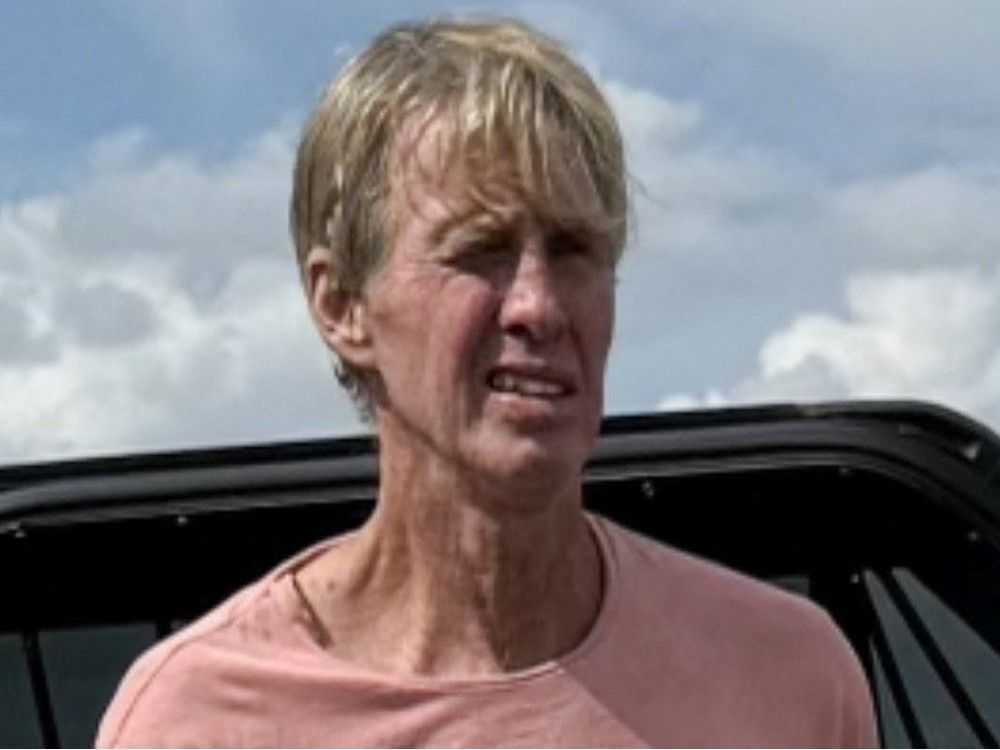Weekly roundup of local and international climate change news for the week of Sept. 16 to Sept. 22, 2024.
Published Sep 21, 2024 • 9 minute read

Here’s all the latest news concerning the climate crisis, biodiversity loss, and the steps leaders are taking to address these issues.
In climate news this week:
• With droughts increasing, B.C. farmers need water reserved for food production
• Forest agency says B.C. should improve watershed management
• Climate and food security join new federal list of Canada’s intelligence priorities
• Flood death toll rises as Europe counts cost of Storm Boris
Advertisement 2
THIS CONTENT IS RESERVED FOR SUBSCRIBERS ONLY
Subscribe now to read the latest news in your city and across Canada.
- Unlimited online access to articles from across Canada with one account.
- Get exclusive access to the Vancouver Sun ePaper, an electronic replica of the print edition that you can share, download and comment on.
- Enjoy insights and behind-the-scenes analysis from our award-winning journalists.
- Support local journalists and the next generation of journalists.
- Daily puzzles including the New York Times Crossword.
SUBSCRIBE TO UNLOCK MORE ARTICLES
Subscribe now to read the latest news in your city and across Canada.
- Unlimited online access to articles from across Canada with one account.
- Get exclusive access to the Vancouver Sun ePaper, an electronic replica of the print edition that you can share, download and comment on.
- Enjoy insights and behind-the-scenes analysis from our award-winning journalists.
- Support local journalists and the next generation of journalists.
- Daily puzzles including the New York Times Crossword.
REGISTER / SIGN IN TO UNLOCK MORE ARTICLES
Create an account or sign in to continue with your reading experience.
- Access articles from across Canada with one account.
- Share your thoughts and join the conversation in the comments.
- Enjoy additional articles per month.
- Get email updates from your favourite authors.
Sign In or Create an Account
or
Article content
Human activities like burning fossil fuels and farming livestock are the main drivers of climate change, according to the UN’s Intergovernmental Panel on Climate Change. This causes heat-trapping greenhouse gas levels in Earth’s atmosphere, increasing the planet’s surface temperature.
The panel, which is made up of scientists from around the world, has warned for decades that wildfires and severe weather, such as B.C.’s deadly heat dome and catastrophic flooding in 2021, would become more frequent and more intense because of the climate emergency. It has issued a “code red” for humanity and warns the window to limit warming to 1.5 C above pre-industrial times is closing.
Once again, Canada had a catastrophic wildfire season that began with Jasper being mostly destroyed. Although wildfires usually ignite because of lightning or human activities, heat waves and drought from human-caused global heating dry out vegetation and make it easier for fires to start and spread, according to the Canadian Climate Institute.
For example, during the eight days of the 2021 heat dome in B.C., the number of wildfires rose from six to 175, with fires that spread during that time consuming nearly 79,000 hectares, including the entire town of Lytton.
Advertisement 3
Article content
But it’s not too late to avoid the worst-case scenarios. According to NASA climate scientists, if we stopped emitting greenhouse gases today, the rise in global temperatures would begin to flatten within a few years. Temperatures would then plateau but remain well-elevated for many centuries.
Check back every Saturday for more climate and environmental news or sign up for our Climate Connected newsletter HERE.
Climate change quick facts:
• The Earth is now about 1.2 C warmer than it was in the 1800s.
• 2023 was hottest on record globally, beating the last record in 2016.
• Human activities have raised atmospheric concentrations of CO2 by nearly 49 per cent above pre-industrial levels starting in 1850.
• The world is not on track to meet the Paris Agreement target to keep global temperature from exceeding 1.5 C above pre-industrial levels, the upper limit to avoid the worst fallout from climate change including sea level rise, and more intense drought, heat waves and wildfires.
• On the current path of carbon dioxide emissions, the temperature could increase by as much as 4.4 C by the end of the century.
• In April, 2022 greenhouse gas concentrations reached record new highs and show no sign of slowing.
• Emissions must drop 7.6 per cent per year from 2020 to 2030 to keep temperatures from exceeding 1.5 C and 2.7 per cent per year to stay below 2 C.
• 97 per cent of climate scientists agree that the climate is warming and that human beings are the cause.
By signing up you consent to receive the above newsletter from Postmedia Network Inc.
Article content
Advertisement 4
Article content
(Source: United Nations IPCC, World Meteorological Organization, UNEP, NASA, climatedata.ca)

Latest News
Climate and food security join new federal list of Canada’s intelligence priorities
The pressing issues of climate change and food security join more familiar ones like violent extremism and espionage on a new list of Canada’s intelligence priorities.
The federal government says publishing the list of priorities for the first time is an important step toward greater transparency.
The government revises the priorities every two years, based on recommendations from the national security adviser and the intelligence community.
Once the priorities are reviewed and approved by the federal cabinet, key ministers issue directives to federal agencies that produce intelligence.
Among the priorities are the security of global health, food, water and biodiversity, as well as the issues of climate change and global sustainability.
—The Canadian Press

West Coast Express train switches to renewable diesel
TransLink says it is converting the West Coast Express train fleet to renewable diesel.
Advertisement 5
Article content
Renewable diesel comes from organic waste, such as used cooking oil, waste animal fats, and vegetable oils.
The company said renewable diesel burns cleaner than fossil fuel diesel, which will help with its zero emission goals.
The conversion delivers a 97 per cent greenhouse gas (GHG) reduction across the fuel life cycle, compared to fossil fuel diesel, according to TransLink.
In total, this means a 3,200-tonne annual GHG reduction, or the equivalent of taking 940 cars off the road per year.
Surrey Transit Centre was the first bus depot to transition to renewable diesel in December 2023, followed by Port Coquitlam Transit Centre and the Vancouver Transit Centre earlier this year.
—Tiffany Crawford

‘We’re being vilified’: With droughts increasing, B.C. farmers need water reserved for food production
Water wars sound like they’re straight from a dystopian novel, but some B.C. farmers say they’re fighting to grow food without reliable access to water.
Still reeling from 2023, when many ranchers were ordered to turn off their irrigation and watch hay crops shrivel — an act that contributed to a 25 to 30 per cent reduction in the size of beef herds — the B.C. Agriculture Council and two large industry groups, B.C. Dairy and the B.C. Cattlemen’s Association, are asking the province to create dedicated agricultural water reserves, similar to the agricultural land reserve.
Advertisement 6
Article content
“We’ve protected the land base, but we haven’t protected the water to go with it,” said Kevin Boon, general manager of the B.C. Cattlemen’s Association. “The land loses its value if we can’t put water on it.”
The B.C. Agriculture Council has been calling on B.C. to follow the lead of other jurisdictions to ensure reliable access to water for agriculture since at least 2012, when the province was seeking submissions on a new water sustainability act. The council’s pitch said agricultural water reserves would be “forward-looking.”
But after several seasons of drought, which has eased in the southern part of the province but continues elsewhere, water shortages are “not a hypothetical anymore,” said Chris Bodnar, agriculture professor at the University of the Fraser Valley.
Climate change has increased the likelihood and intensity of drought cycles, while the water sustainability act, which was eventually introduced in 2016, is largely “dysfunctional,” he said.
—Glenda Luymes
Canada makes small emissions cut in 2023, but must ramp up to hit key targets: report
Advertisement 7
Article content
Hikes to oil production and rebounding air travel put a drag on Canada’s climate progress last year, a report published Thursday by a leading policy institute found, though the country was still able to make a modest cut to its planet-warming emissions.
The new estimates from the Canadian Climate Institute show Canada cut emissions by about 0.8 cent last year compared to 2022, or eight per cent since 2005.
But the report said the country will need to speed up that progress if it hopes to hit its 2030 target to cut emissions by 40 to 45 per cent compared to 2005 levels.
“Sustained policy effort in the electricity sector demonstrate that significant progress is achievable, but other sectors need to follow suit and accelerate their momentum to keep Canada on track,” it said.
Industrial carbon pricing and coal phaseouts were cited as two policies helping to drive the electricity sector’s decarbonization efforts, with emissions falling 6.2 per cent year-over-year, or 62 per cent since 2005.
—The Canadian Press
Flood death toll rises as Europe counts cost of Storm Boris
Advertisement 8
Article content
Floods ripped through central Europe killing at least 17 people, as governments across the region took emergency measures and prepared to spend hundreds of millions of euros on the cleanup.
Flows in the Danube — Europe’s second-longest river — were at levels statistically likely only once every 85 years, after Storm Boris dumped torrential rain on Austria, the Czech Republic, Poland and Hungary. Red weather alerts remain in place, with thousands of people already evacuated over the weekend.
After a summer of heat waves across southern Europe, the destructive storm — mixing cold air from the north with moisture drawn from the warm waters of the Mediterranean — may be another sign that climate change is increasing the intensity and frequency of extreme weather events. It’s also forcing governments to set aside scarce funds to rebuild.
The Polish government announced a state of emergency in some regions on Monday, while a similar declaration was made in Lower Austria on Saturday. Romania is poised to declare a state of alert in the two counties hit hardest by the floods, as it looks to speed repairs to houses, bridges and infrastructure.
Advertisement 9
Article content
Analysis by scientists at ClimaMeter — a project funded by the EU and French National Centre for Scientific Research — found that climate change means that depressions like Storm Boris have become 20 per cent more intense in the past two decades compared with the preceding 22 years.
“These are not just isolated natural disasters,” Davide Faranda of CNRS France said in an email. “Research shows that extreme rainfall is becoming more frequent and intense due to man-made climate change.”
—Bloomberg News

Hallmarks of climate change seen in floods, fires and drought around the globe
The hallmarks of climate change — extreme heat and drought; larger, more intense wildfires and supercharged hurricanes, typhoons and rainstorms that lead to catastrophic flooding — are being seen and felt around the globe.
Drought in Brazil. Wildfires in Portugal, Peru and the Western U.S. Severe flooding swamping Central Europe, Southeast Asia and Western Africa.
Firefighters across northern Portugal are working to contain some 100 wildfires caused by hot, dry conditions, stretching crews thin. Fires have forced residents to flee their homes and are blamed for the deaths of at least six people, including four firefighters.
Advertisement 10
Article content
In Peru, wildfires have left at least 15 people dead since July and 22 of the nation’s 24 regions have active outbreaks. Peru’s National Forest and Wildlife Service, SERFOR, says the effects of climate change are intensifying conditions that help spread fire. In Brazil, flames were burning through Brasilia National Park.
Read the full story and see the AP photos here.
—The Associated Press
Forest agency says B.C. should improve watershed management
B.C.’s Forest Practices Board says a complaint about “excessive” logging has led to a call for the province to improve how it manages watersheds.
The independent agency says it looked at harvesting in the Kettle River watershed in southeastern B.C. between 2016 and 2021, finding 58 per cent of 169 large cut blocks were located in “sub-watersheds” later determined to be at risk.
A statement from the board says it found five of seven forest companies did not conduct watershed assessments during that period nor were they required to.
Board chair Keith Atkinson says the reviews are vital for managing land use and hydrology, but B.C. does not require logging companies to consider watershed conditions in their plans, except in areas that supply drinking water to communities.
Advertisement 11
Article content
The board says it found the ministry had assessed harvesting in the area, identifying “shortcomings” and prompting improvements by the forest companies.
—The Canadian Press
Bookmark our website and support our journalism: Don’t miss the news you need to know — add VancouverSun.com and TheProvince.com to your bookmarks and sign up for our newsletters here.
You can also support our journalism by becoming a digital subscriber: For just $14 a month, you can get unlimited access to The Vancouver Sun, The Province, National Post and 13 other Canadian news sites. Support us by subscribing today: The Vancouver Sun | The Province.
Article content
.png)
 3 hours ago
4
3 hours ago
4
































 Bengali (BD) ·
Bengali (BD) ·  English (US) ·
English (US) ·